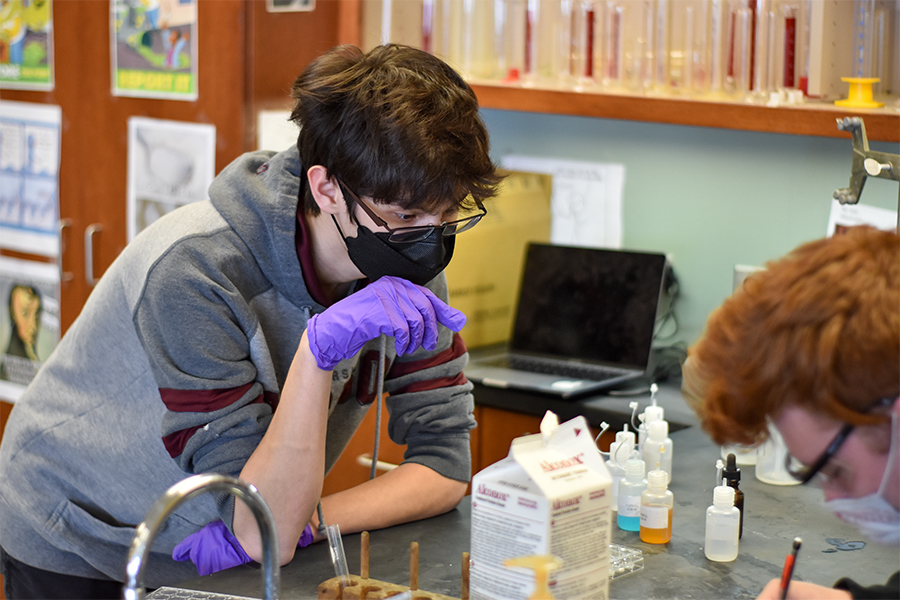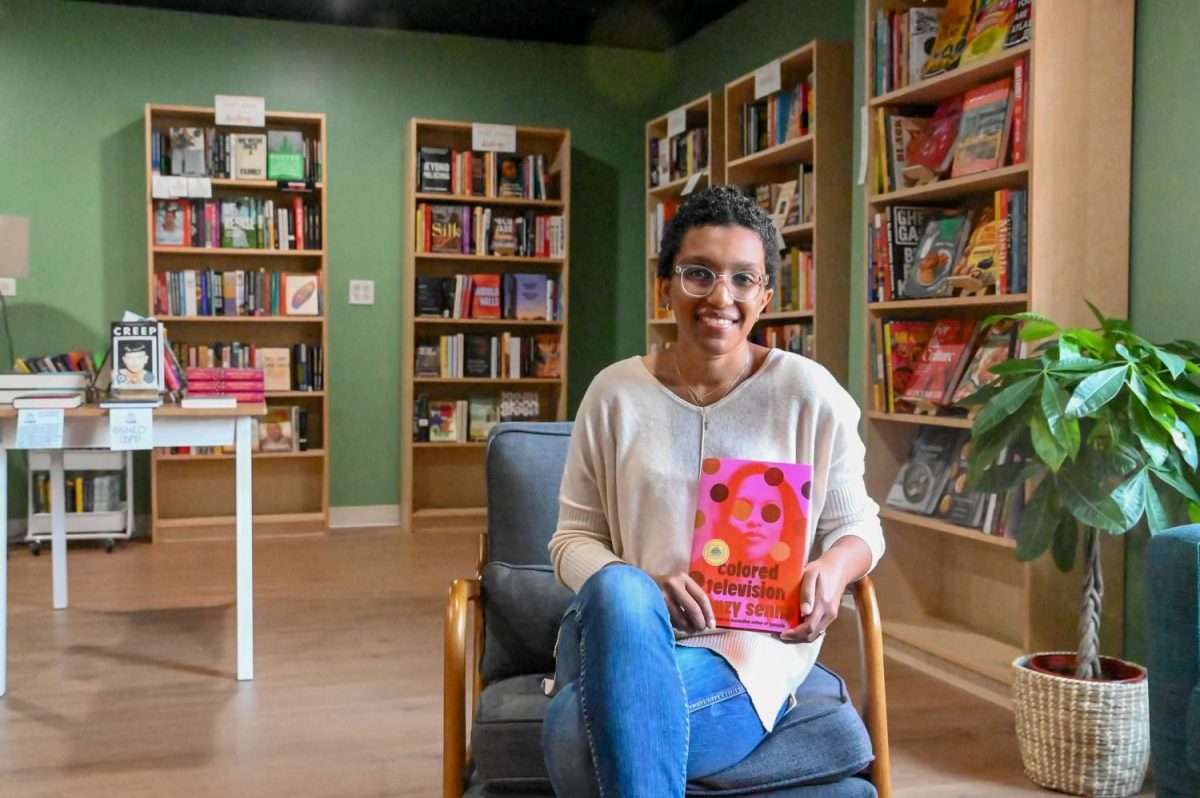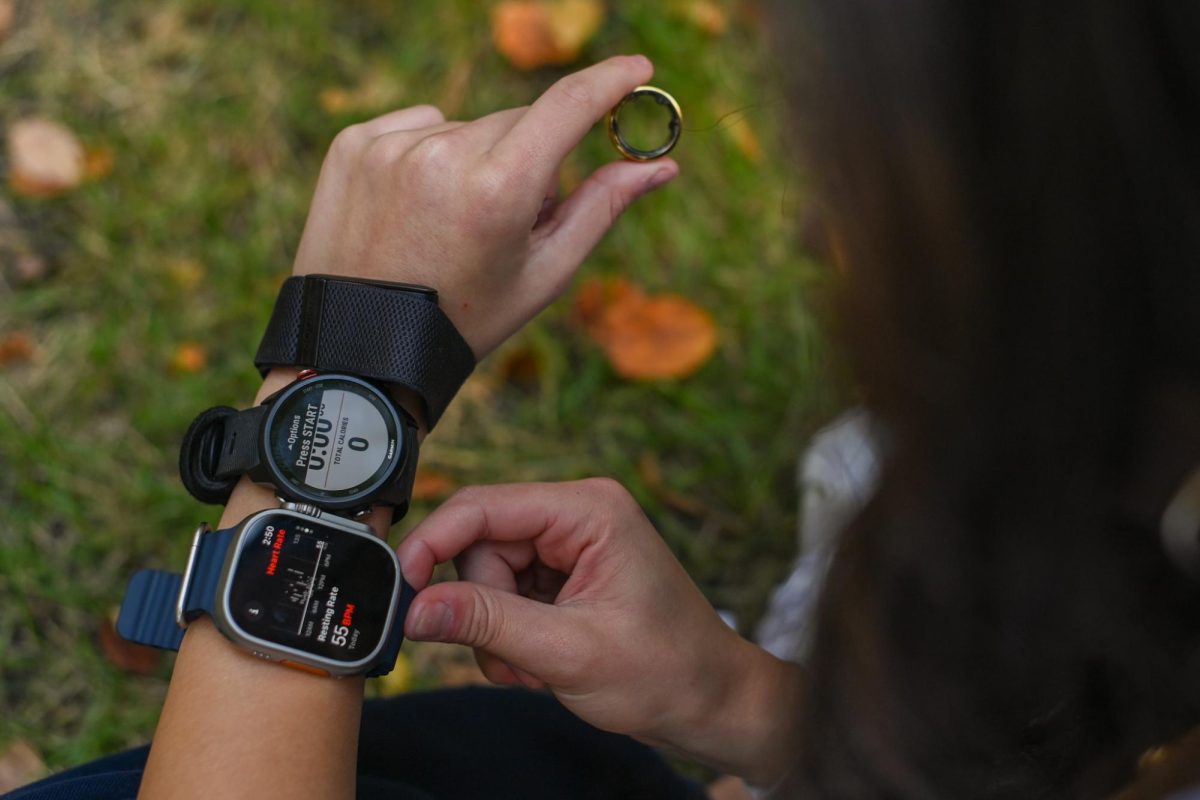Laboratory activities to resume despite scheduling restrictions
Juniors Eddie Christensen and Eli Frank complete a lab for chemistry class after school. Science teachers say that laboratory experiences are too valuable to eliminate permanently as they help students prepare for real-world situations and allow for students to understand abstract concepts.
April 19, 2021
After a year of distance learning with few laboratory experiences in science classes, science teachers say that such experiences are too valuable to eliminate permanently, even as returning to the double-period arrangement restricts the schedule for some students.
Because of the double period, students typically must devote a quarter of their schedule to science during their first two years of high school to satisfy U-High’s graduation requirements.
Chemistry teacher Zachary Hund argues that lab experiences are necessary for students to fully understand abstract concepts.
“To do science is to understand science, to understand science is to do science,” Dr. Hund said. “When you’re doing a lab and something goes wrong, that’s where the learning happens. All of a sudden, the theoretical concepts you hear in class play out right in front of you, and you have to learn to confront that.”
Biology teacher Elizabeth Hubin believes labs help prepare students for real-world situations both within and outside the sciences.
“It’s important for students going into science to feel comfortable setting up and executing experiments,” Dr. Hubin said, “and it’s also important for all students to develop skills that are very important in all aspects of college — and life, like working with peers, being responsible, analytical thinking and contributing to a group.”
According to Dr. Hubin, a double period is necessary to conduct many of the labs that represent the staples of her curriculum, especially in her AT Biology class.
“Many of the labs take multiple classes just because the labs themselves take time,” she said. “If you’re heating something in a beaker, you have to wait until it’s ready. You can’t leave it until the next day or next week because it’ll cool down. Labs are live and active, so they take more of a time investment.”
Junior Andrew Swinger, who has taken three lab-based science classes, also sees value in labs and is disappointed they weren’t able to be included in the distance learning curriculum.
“Labs help with the whole experiential learning part,” he said. “If there’s something I don’t understand in class, I can learn for myself in real time with help from the teacher when I need it. It’s definitely something I miss from last year.”
Because of the depth students get from U-High’s lab-based science curriculum, college counselor Sharon Williams believes college admissions officers give U-High applications a stronger read.
Even though Ms. Williams believes colleges will largely ignore the 2020-21 pause in labs due to the circumstances of hybrid and distance learning, Dr. Hund believes many students missed out on an important part of the science curriculum this academic year.
“I’m not worried, but I am suspecting to see some students who move on to more advanced classes next year with a weaker foundational knowledge and less confidence,” he said.
Although Andrew agrees that labs are an important part of the science curriculum, he sympathizes with concerns that the double period limits student choice.
“I get that a lot of people who don’t want to spend a quarter of their schedule on science feel like they’re forced to because of the necessary science credits and the social pressure to take a third lab science,” he said. “For some students, it doesn’t feel worth it to take the science class they’re interested in because they have to sacrifice a whole other period when they could take another arts or history class.”
Ms. Williams encourages students to take the courses they are interested in rather than bending to social pressures among the student body.
“I hear about this pressure a lot, to take three years of lab sciences,” she said. “It’s true that a lot of schools recommend this, but it also depends on what you want to study. A student who likes the arts or social sciences is probably not going to apply for engineering at MIT. They can make their courses rigorous in the areas they’re interested in and apply to the appropriate schools.”
Andrew hopes that in the future, a middle road can be reached to provide students with the opportunity to take lab sciences without a double period.
He said, “I feel like that would reach everyone at their interest level. Students who want more in-depth knowledge can take the double period, and others who are less sure can still take a lab science without sacrificing their interests.”












